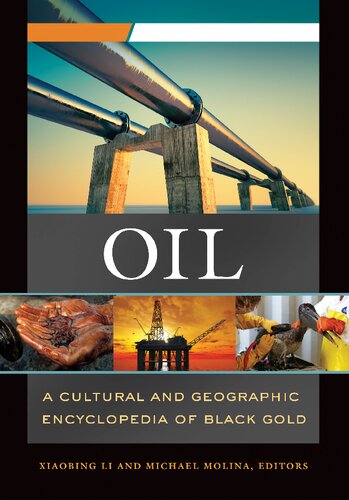

Most ebook files are in PDF format, so you can easily read them using various software such as Foxit Reader or directly on the Google Chrome browser.
Some ebook files are released by publishers in other formats such as .awz, .mobi, .epub, .fb2, etc. You may need to install specific software to read these formats on mobile/PC, such as Calibre.
Please read the tutorial at this link: https://ebookbell.com/faq
We offer FREE conversion to the popular formats you request; however, this may take some time. Therefore, right after payment, please email us, and we will try to provide the service as quickly as possible.
For some exceptional file formats or broken links (if any), please refrain from opening any disputes. Instead, email us first, and we will try to assist within a maximum of 6 hours.
EbookBell Team

4.1
40 reviewsDespite ongoing efforts to find alternatives, oil is still one of the most critical—and valuable—commodities on earth. This two-volume set provides extensive background information on key topics relating to oil, profiles countries that are major producers and consumers of oil, and examines relevant political issues.
Aside from air and water, oil is perhaps the most valuable natural resource. Oil supplies the tremendous energy needs of the modern world. What exactly is "oil," where does it come from, how does it get consumed, and who is using it? This encyclopedia provides clear answers to these questions and more, offering students entries on the fundamentals of the oil industry and profiles of the countries that play a major role in oil production and consumption.
Volume 1 presents topical entries on critical concepts, key terms, major oil spills and disasters, and important organizations and individuals relating to the oil industry. Entries define terms such as "barrel" and "reserve," cover incidents such as the BP oil spill, and explain the significance of organizations such as OPEC. The second volume spotlights specific countries that are major producers, consumers, exporters, and importers of oil, from the United States to Russia to Saudi Arabia to Venezuela. Each profile shows readers the importance of oil in that country through a brief background history, data on its oil usage or production, information about major trading partners, and an explanation of political issues.